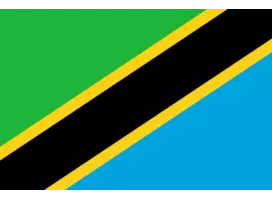Tanzania health recommendations
Sanitary advices to visit Tanzania
Tanzania is a big country with around 55M Tanzanian. Official language is Swahili. Tanzania uses metric system (kilograms, centimeters, °C). Time zone is UTC+03:00. Currency used in Tanzania is Tanzanian Shilling (TZS).
🏙️ Dar es Salaam🗣️ English Swahili
👨👩👦👦 55M ☀️ ~23 °C 🌧 ~84 mm 👍 Least Developed 🚩 945k km2 (365k mi²)
Sanitary Recommendations
General recommendations
Malaria is present throughout Tanzania. If visiting an area with malaria, you will need to discuss with your doctor the best ways for you to avoid getting sick. In some areas where the risk of malaria is high taking an anti-malarial is recommended. The following anti-malarial drugs are equal options for preventing malaria in Tanzania: Atovaquone-proguanil, doxycline or mefloquine. For more information see the CDC Malaria Advice.
NOTE: Chloroquine is NOT an effective antimalarial drug in Tanzania.
Note: The World Health Organisation recommends that travellers avoid using a drug called Halofantine (or Halfan) used in this region to treat suspected malaria. It can have serious heart related side effects and should only be used in extreme life threatening situations.
Dengue, Chikungunya and African tick bite fever are diseases carried by insects that are found in Tanzania. African trypanosomiasis (African sleeping sickness) is carried by the tsetse fly. Travellers spending a lot of time outdoors in rural areas have an increased risk. Protecting yourself against insect bites will help to prevent these diseases. For more information see the CDC Insect Protection Advice.
Many countries in this region have high incidence rates of tuberculosis and high HIV prevalence rates.
Highly pathogenic avian influenza (H5N1) continues to be reported in this region amongst domestic and wild birds, there have also been human cases. It is advisable to avoid all direct contact with birds, including domestic birds like chickens and ducks. It is best to avoid poultry farms and bird markets. For a current list of countries reporting outbreaks see the World Organisation for Animal Health.
Recommendations
It is recommended that a traveller is up to date with routine shots like measles/mumps/rubella (MMR), diphtheria/pertussis/tetanus (DPT) and poliovirus vaccine.
Hepatitis A or IG vaccine is recommended for all tourists and professionals. Infection is through food, water and accommodation. Tanzania has a high level of Hepatitis A infection.
Hepatitis B vaccine is recommended, especially for those who may have contact with blood, bodily fluids or have sexual contact.
Typhoid vaccination is recommended, especially for those travelling to smaller cities, villages and rural areas.
Yellow fever vaccination is recommended to travellers over 9 months of age who will be staying in Tanzania for a long period of time.
Rabies is present in Tanzania, vaccination is recommended for those planning an outdoor holiday, for veterinary professionals or for thosecoming into contact with bats.
Countries nearby Tanzania
More on Tanzania travel and visa information
All the informations you need to schedule your trip to Tanzania.








